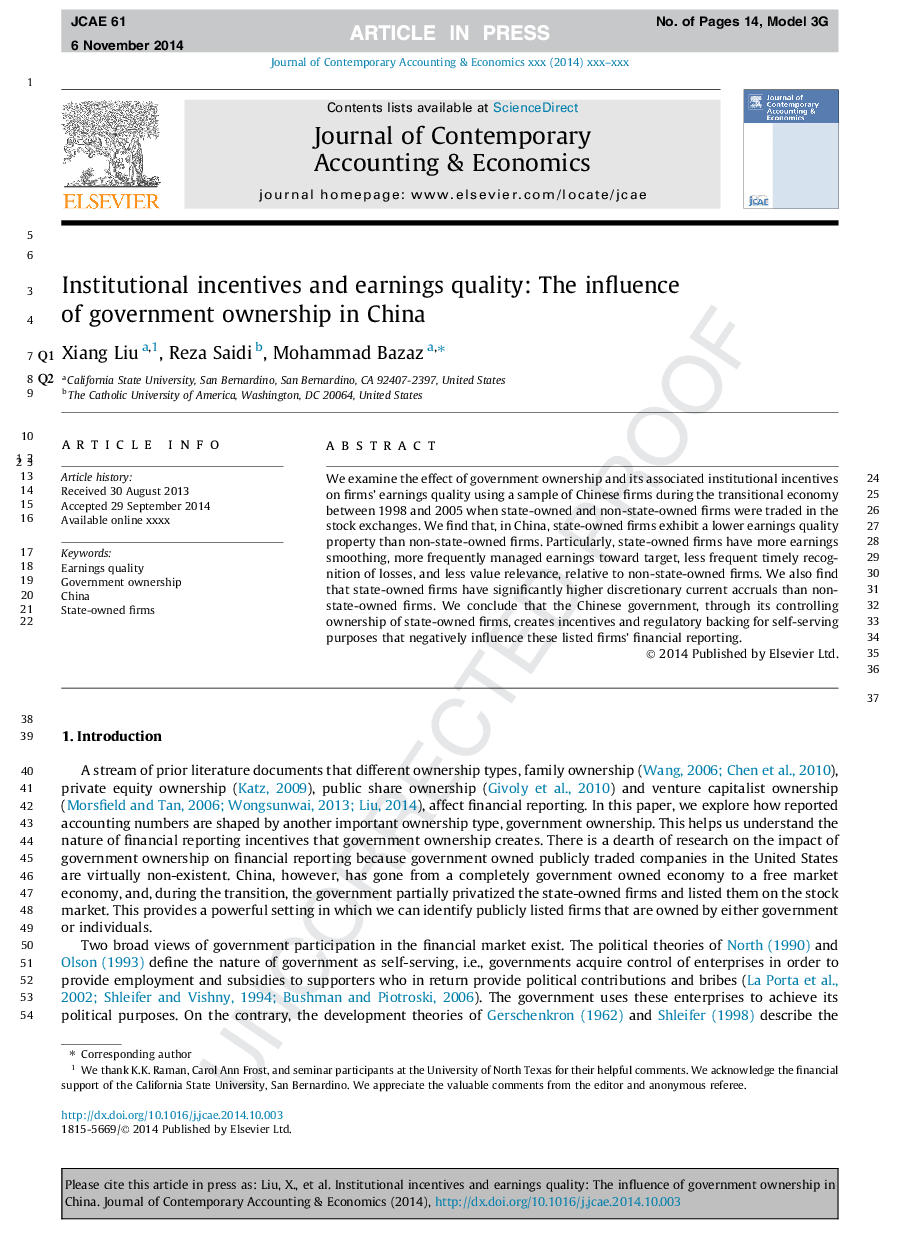| Article ID | Journal | Published Year | Pages | File Type |
|---|---|---|---|---|
| 5092863 | Journal of Contemporary Accounting & Economics | 2014 | 14 Pages |
Abstract
We examine the effect of government ownership and its associated institutional incentives on firms' earnings quality using a sample of Chinese firms during the transitional economy between 1998 and 2005 when state-owned and non-state-owned firms were traded in the stock exchanges. We find that, in China, state-owned firms exhibit a lower earnings quality property than non-state-owned firms. Particularly, state-owned firms have more earnings smoothing, more frequently managed earnings toward target, less frequent timely recognition of losses, and less value relevance, relative to non-state-owned firms. We also find that state-owned firms have significantly higher discretionary current accruals than non-state-owned firms. We conclude that the Chinese government, through its controlling ownership of state-owned firms, creates incentives and regulatory backing for self-serving purposes that negatively influence these listed firms' financial reporting.
Related Topics
Social Sciences and Humanities
Business, Management and Accounting
Business, Management and Accounting (General)
Authors
Xiang Liu, Reza Saidi, Mohammad Bazaz,
